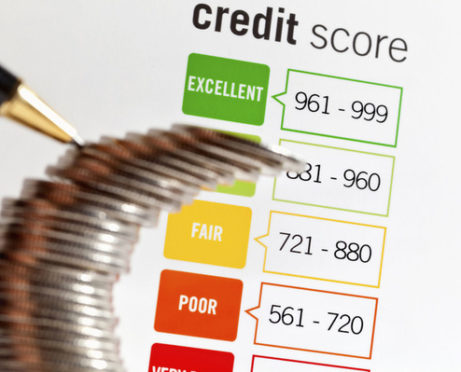
 Have you ever wished you could improve your finances, but weren’t sure where to start? Or worse, have you felt completely daunted by the changes you need to make in your financial life? The good news is that there are a few five-minute steps you can take to improve your finances in a big way.
Have you ever wished you could improve your finances, but weren’t sure where to start? Or worse, have you felt completely daunted by the changes you need to make in your financial life? The good news is that there are a few five-minute steps you can take to improve your finances in a big way.
As part of Financial Literacy Month, we’re sharing some of them here.
1. Access Your Credit Report
Your credit score can affect much of your financial life as an adult. It’s used when you apply for an apartment, a car loan, a home loan, or a credit card. Your credit report is a document that contains your credit history, which determines your score.
It’s a good idea to access your credit report, which you can do for free at AnnualCreditReport.com. Doing so allows consumers to review their reports and look for any errors.
Check Your Credit Score for Free — Visit Site >>
If there are mistakes on your report, it could cost you big-time. According to a study from the Federal Trade Commission, 26 percent of survey participants found a potential error in one of their credit reports from the three major credit bureaus. If you find an error on your credit report, you will need to dispute it for the sake of your future financial health. Accessing your credit report will let you know where you are regarding your credit history and alert you of any errors.
2. Calculate Your Total Debt
It’s not uncommon to be in denial about your debt. I know this because for years I didn’t know how much debt I had. I didn’t want to know.
But knowledge is power, right? And you can’t make an action plan if you stay in the dark about your debt.
Start by calculating all of it. That means your credit card debt, your mortgage, and yes, even your student loans.
Log into all of your accounts and write down each total on a piece of paper. Tally it all up. Seeing that total number might be overwhelming, and that’s okay. It’s still a big first step in moving towards acceptance and taking action on your debt.
3. Sign Up for Digit to Start Saving
Have you ever felt like you couldn’t afford to save? Or that you don’t know how to start or how much you are “supposed” to save. The good news is that financial technology is taking the guesswork out of saving and doing it for you.
You can sign up for Digit, an app that automates the saving process. Digit checks your account balance and ensures that you only save what you can afford. The downside? Your Digit savings account doesn’t accumulate interest, the way a traditional savings account does. But this can be a foolproof way to get you started with saving if you’ve struggled in the past.
Opening a Savings Builder Account is Easy — Get Started >>
4. Sign Up for Auto-Pay on Bills
Bills, bills, bills. As an adult, it seems like there are so many of them, it’s hard to keep track. To make your life easier and stay on top of your bills, consider signing up for auto-pay. Auto-pay is when you sign up for automatic payments to be withdrawn from your checking account to pay your bills. Auto-pay can streamline the bill-paying process and potentially save you money.
For example, many student loan servicers offer a 0.25 percent interest rate reduction for borrowers who opt for auto-pay. While this can free up some time, it’s important that you choose a withdraw date on a day when you know you'll have the funds in your account. Setting a date after payday and continuing to check your bank account daily could help.
5. Review Your Bank Account
How often do you check your bank account? Be honest. If you have trouble remembering your password, you should check more often. By doing so, you can…
- Review your spending.
- Keep track of how much is in your account.
- Make sure that your payments hit.
- Check for fraud.
If you have a handle over your cash flow, you can be more mindful of your purchases. Not only that, but you’ll probably avoid annoying overdraft and non-sufficient fund fees. To make things even easier, many banks have a mobile app so that you can access your account easily.
A Final Thought
Improving your financial life doesn’t happen overnight. Big change consists of taking small actions, and it requires a dose of courage and commitment. Using these five tips, you can take quick, easy actions to improve your finances.










